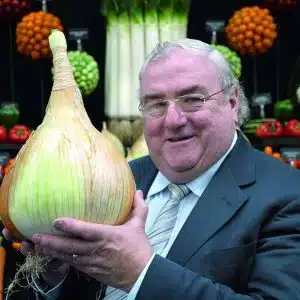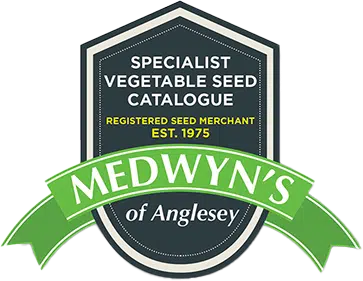Home - Master Class Weekend

Medwyn Williams
Hello. I'm Medwyn Williams – eleven times Gold medal winner at the Chelsea Flower Show, Past Chairman of the Royal Horticultural Society Fruit Vegetable and Herb Committee and President of the National Vegetable Society.
Master Class Weekend


The Master Class Weekend at The Royal Hotel Llanberis in Gwynedd went down really well with many saying it was the best ever with a good mixture of speakers and topics. I would like to thank each and every one of the speakers who had obviously spent some time in preparing thoroughly their talks. Gareth Cameron kicked off the Saturday morning session talking about his experiences of using Compost Tea.
There’s no doubt that Gareth is now a firm believer in the benefits of compost tea and after his talk I have I’m sure that some of those attending will also be keen to try it out. A couple of years ago Gareth hit a brick wall regarding his growing, his onions, grown in a polytunnel, were very poor but since he started using compost tea he’s back on the winning trail once again. I have to confess that I haven’t used it and I really do have an open mind about it. However I do believe that if you don’t look after the soil it won’t look after you either.
My father was a great grower of a range of vegetables and his success was predominantly because he looked after the soil in a way that nature intended. The humus levels in his soil were always high as he regularly dug in all the garden waste as well as plenty of farmyard manure. He never had any measuring gadgets that we have today so that we know what our PH is and all the other macro nutrients as well by simply sticking a probe into the soil and taking a reading from a screen. We must always remember that the soil is a living thing full of organisms as well as plenty of worms.
One thing that Gareth commented on was the lack of worms in his soil at the time he hit his imaginary ‘brickwall’ This was quickly altered when he discovered that by covering the soil in the beds with corrugated paper, or any cardboard which is always kept moist, the worm population increased as, apparently, they love to digest the moist cardboard. As an earthworm feeds, organic matter passes through its body and is excreted as granular dark castings. You may see these small casting piles in your garden. An earthworm produces its weight in castings daily. Worm castings are a wonderful fertilizer, rich in nutrients otherwise unavailable to plants.
The problem, as it has been over the past few decades, is that we tend to use more and more manmade nutrients in the soil. When you add nitrogen rich compost to your soil, you help worms thrive. However, adding synthetic nitrogen fertilizers may repel earthworms. Worms are very sensitive to physical and chemical changes and will flee the salty conditions that result from an application of chemical fertilizer. Reading an old book recently I came across this interesting fact – A single acre of cultivated land may be home to as many as 500,000 earthworms, each making the soil a better place for plants.
When I was a child we had no running water at home, no electricity and no sewerage system, quit primitive in many ways. What little waste there was from the kitchen was composted and the toilet consisted of a bucket inside a corrugated tin hut at the bottom of the garden. The thing was though everything went into the soil, including the contents of the bucket as well as the cinders from the fire place. The result was that the soil was fantastic, perhaps a little light owing the constant addition of cinders and wood ash from the fireplace.
I’m very lucky living in a rural area to be able to get plenty of farmyard manure and I shall be having a load delivered early in the new year. For those of you who can’t get farmyard manure, Nutrimate or ‘Powdered Gold’ is an excellent substitute. 5kgs of NutriMate is equal to one tonne of well rotted farmyard manure. There can’t be many things more organic than Nutrimate, it’s an organic growth stimulant unlike anything you will have used before. For a start, it’s taken 70 million years to produce! The Humic and Fulvic acids in it occur naturally in manure so it is an ideal replacement with the added benefit of no smell, no weeds and far less effort.
Nutrimate or Powdered Gold is made from Leonardite, a low rank coal derived from prehistoric plant matter. Leonardite is a soft waxy, black or brown, shiny, vitreous mineraloid that is easily soluble in alkaline solutions. It is an oxidation product of lignite, associated with near-surface mining . It is a rich source of Humic acid (up to 90%) and is used as a soil conditioner. It is found as outcropping of lignite deposits, usually very close to the surface. It’s a natural form of hamates, completely organic in nature and beneficial in a wide variety of applications. Numerous tests have been conducted which substantiate the fact that Leonardite consistently shows higher levels of carbon content, resulting in a higher Humic content.

2 thoughts on “Master Class Weekend”
I’ve not used compost tea but have done quite a bit of reading about it the past season, intending to try in 2015. What it seems to me is that there is ‘compost tea’ and ‘compost tea’. There is ‘aerated compost tea’ where you bubble air through the brewing tea for 24 – 48hrs using an aquarium-style set up, then there is adding your compost tea in a stocking and simply stirring it a bit as you let it brew.
I think the difference occurs in the ecosystem of aerobic bacteria/fungi vs anaerobic bacteria/fungi which is created using the various systems. The aeration approach produces far more aerobic organisms, which some claim is what is the ‘magic ingredient’. There is a company in Surrey called Symbio which has gone about designing aerated compost tea makers in a fairly professional way, so you might want to have a chat with them about what they have to say.
The only contribution I can make currently is to say that I made a nettle tea without bubbling air through it last April and fed it to the over-wintered broad beans. We had by far the best crop ever, but I’m not so sure it’s what you want to put on alliums.
MY gut feel is that aerated compost tea is best at creating fertility where this is little or none present originally and if your beds are already highly fertile and swimming with worms, micro-organisms and fungi, then maybe the additional effect may be a bit less. Obviously, your ‘starter culture’ of microorganisms/fungi will be determined by the compost you use and, I guess, how they respond to molasses or other food stimuli you might decide to give them.
What I am sure of is that you could design some highly focussed and productive science research projects using compost tea if you partnered with a company like Symbio, some microbiological analysis labs (to test your starter compost composition, the final composition of organisms after the experimental brewing regimen and the soil onto which you intend applying your compost tea). Whether the Govt would see that as old hat or worth funding I don’t know, but two SMEs working with an HEI is just what has been sought the past 15 years.
Thanks for your observations Rhys, very interesting and thought provoking. I wonder how many others on my Blog are using or going to use some style of Compost Tea in 2015.